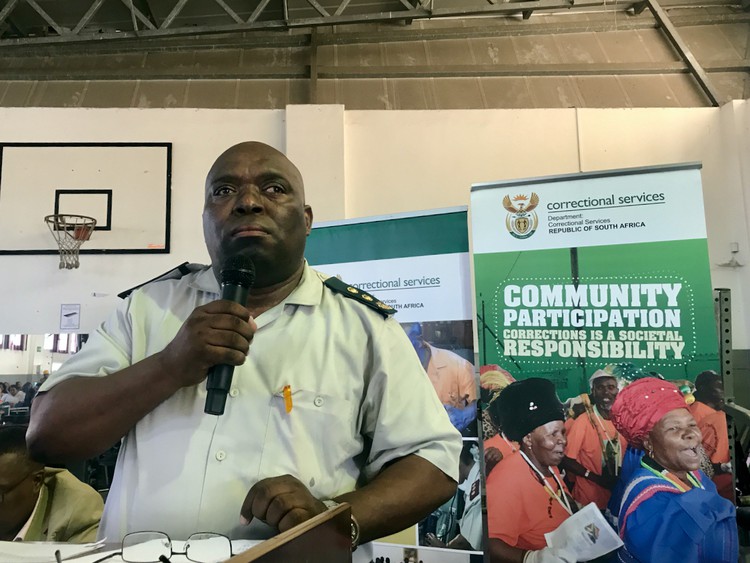Prison officials explain Ramaphosa’s decision to reduce sentences
Officials ask Dunoon residents to accept ex-convicts back into society, as nearly 900 released from Pollsmoor
In December, President Cyril Ramaphosa announced that the sentences of thousands of prisoners were being shortened. Since the announcement, Pollsmoor Prison has released 887 offenders, according to Ntobeko Mketshane, area commissioner of the prison.
On Thursday, a large contingent of Pollsmoor officials, accompanied by senior police and officials from the Department of Home Affairs, hosted a meeting at the Dunoon municipal hall to explain Ramaphosa’s decision.
They were also accompanied by convicts who had served a portion of their sentences and are currently on parole. One of them, Lwazi Ntshata, spoke to the crowd. He had been sentenced to ten years and served just over half this.
Ntshata told the packed out hall that he was 17-years-old when he committed his crime. He was fearful of the outside world upon his release, thinking that his mother and father, who live in Langa with his two siblings, would reject him. But they told him that no matter what, he was still their child.
“It made me feel so happy. I was [so] scared of being rejected,” he said.
Mketshane told the community the special remission did not apply to any sentenced offender, probationer, parolee or day parolee serving time for sexual offences, murder and attempted murder, armed robbery, sedition, high treason, sabotage and terrorism, violations under the domestic violence act and child abuse. It also did not apply to those certified as mentality ill or declared as dangerous by the court, nor to any person sentenced to life imprisonment, any escaped offender, or any who had jumped bail.
“We are aware that communities have concerns about this process because there are perceptions that people are … arrested, sentenced and come out quickly. We want to make communities understand that convicted people will serve their sentence and eventually they will be released back into the community,” said Mketshane.
“That neighbour of yours, that uncle, child, church member after serving their sentence, they will come out,” he said. “There is no way we can lock them up and throw the key away into the ocean.”
“We need communities, faith based organisations, non-profit organisations to join hands with us in correcting the offending behaviour.”
“We appeal to the community to welcome offenders back in your homes, churches and communities. We kindly request a soft landing for these offenders in your streets,” said Mketshane.
Pollsmoor official Billy Ncobo said the first batch of convicts receiving remission were South Africans released on 17 December 2019, followed by foreigners on 14 January 2020.
Lewis Davids, a spokesperson at Pollsmoor, said overcrowding at the prison was a concern. It is at 153% capacity. This had a negative affect on rehabilitation programmes at the prison. He said the prison infrastructure “is broken”. A cell supposed to accommodate 28 convicts has 65 inmates.
Attorney and head of the Penal Reform Programme at Lawyers for Human Rights Clare Ballard said remission of sentences of offenders is not a bad thing in itself, but the idea that it can alleviate overcrowding is misguided.
She said prisons varied greatly; some are very overcrowded, others under capacity.
“If you apply a blanket approach like remission [of sentences of offenders] it cannot alleviate the prison’s specific problems on the ground … The causes of overcrowding are complex and multiple. Unless our government makes a very meaningful attempt to deal with complex causes of overcrowding, prisons conditions will remain unchanged,” said Ballard.
Support independent journalism
Donate using Payfast

Don't miss out on the latest news
We respect your privacy, and promise we won't spam you.
© 2020 GroundUp.
This article is licensed under a Creative Commons Attribution-NoDerivatives 4.0 International License.
You may republish this article, so long as you credit the authors and GroundUp, and do not change the text. Please include a link back to the original article.

